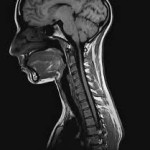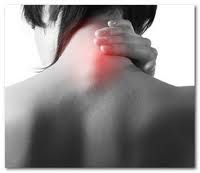Neck arthritis is also known as cervical spondylosis or chronic neck pain. It is a disorder that involves the abnormal wearing out of the bones and cartilages of your neck. This kind of pain in your cervical vertebrae is not something you should take lightly.
Like any other ailment, neck arthritis should be dealt with properly so as to avoid any mistake in diagnosis or treatment. Here are some of the facts that you need to know about neck arthritis:
1. Symptoms
 The symptoms of neck arthritis can get worse all of a sudden. It may start as a mild pinch or just be a very deep and severe degree of pain that immobilizes you. The usual area is above the shoulder blade, radiating to the arms and fingers. The pain that you experience may become aggravated during the night, after you sit or stand, when you walk a short distance, when you bend your neck, as you laugh, cough, or even sneeze. Certain weak muscles may also bring about neck arthritis. This may only come about during your doctor’s examination. You may also experience difficulty in squeezing one of your hands, stiffness of the neck, numbness of the arms and shoulders, headaches (at the back of the head), loss of control over bowels and balance, or pain in lifting your arm.
The symptoms of neck arthritis can get worse all of a sudden. It may start as a mild pinch or just be a very deep and severe degree of pain that immobilizes you. The usual area is above the shoulder blade, radiating to the arms and fingers. The pain that you experience may become aggravated during the night, after you sit or stand, when you walk a short distance, when you bend your neck, as you laugh, cough, or even sneeze. Certain weak muscles may also bring about neck arthritis. This may only come about during your doctor’s examination. You may also experience difficulty in squeezing one of your hands, stiffness of the neck, numbness of the arms and shoulders, headaches (at the back of the head), loss of control over bowels and balance, or pain in lifting your arm.
2. Diagnostics
 When you see your doctor to help you with your neck arthritis, you will be asked to rotate your head and move it towards your shoulders as slight pressure is placed on your head. The increased amount of pain that you experience during the test is an indication that there is pressure on the spinal nerve.  Be warned that the significant weakness and numbness can be signs that your nerve roots or even your spinal cord is damaged already. Reduced amount of reflexes is a common indication. You need to undergo an MRI (severe pain of the arm and neck that doesn’t get relieved when treated or numbness of hands or arms) and an X-ray (changes in the spinal configuration or arthritis).  To test for nerve root function, you would have to undergo nerve conduction velocity and EMG.
When you see your doctor to help you with your neck arthritis, you will be asked to rotate your head and move it towards your shoulders as slight pressure is placed on your head. The increased amount of pain that you experience during the test is an indication that there is pressure on the spinal nerve.  Be warned that the significant weakness and numbness can be signs that your nerve roots or even your spinal cord is damaged already. Reduced amount of reflexes is a common indication. You need to undergo an MRI (severe pain of the arm and neck that doesn’t get relieved when treated or numbness of hands or arms) and an X-ray (changes in the spinal configuration or arthritis).  To test for nerve root function, you would have to undergo nerve conduction velocity and EMG.
3. Causes
 When your cervical spine wears out, this results to neck arthritis. Your so-called cushioned or vertebral disks are included in the problem. There may also be spurs or growths on your vertebral column as well. As you grow older, the compression continues on the nerve roots. Some cases involve the spinal cord, which affects the arms and legs. The wear and tear on the spine may be frequently experienced by those people who lead a very active lifestyle and career. Other possible factors that may cause neck arthritis are sedentary living, obesity, old age, spinal injury, old neck injury, osteoporosis, arthritis (severe), and slipped disk.
When your cervical spine wears out, this results to neck arthritis. Your so-called cushioned or vertebral disks are included in the problem. There may also be spurs or growths on your vertebral column as well. As you grow older, the compression continues on the nerve roots. Some cases involve the spinal cord, which affects the arms and legs. The wear and tear on the spine may be frequently experienced by those people who lead a very active lifestyle and career. Other possible factors that may cause neck arthritis are sedentary living, obesity, old age, spinal injury, old neck injury, osteoporosis, arthritis (severe), and slipped disk.
4. Treatments
 The treatments for your neck arthritis aim to manage the pain that you have and to help you keep active and avoid possible surgery. This can be done by being under the care of a physical therapist, who will help you with stretches and exercises that aim to strengthen your neck muscles and ease your pain; by attending sessions with a massage therapist, an acupuncture specialist, or a chiropractor who could treat you without the use of medicine; by using cold and hot packs when your pain flares up; by cognitive behavioral therapy that helps in understanding the source of your pain; and certain prescribed medications as well. Medications that are usually taken for neck arthritis are anticonvulsants, antidepressants, NSAIDs (naproxen, aspirin, ibuprofen), and narcotics (opioids). Make sure that you discuss these medications with your doctor if your are to take them every single day. Common side effects include kidney damage, liver damage, stomach bleeding or ulcers. If ever the pain of neck arthritis does not get relieved by these methods or you suddenly had a loss of feeling or movement, surgery is usually the final resort to relieve the built up pressure on the spinal cord or nerves.
The treatments for your neck arthritis aim to manage the pain that you have and to help you keep active and avoid possible surgery. This can be done by being under the care of a physical therapist, who will help you with stretches and exercises that aim to strengthen your neck muscles and ease your pain; by attending sessions with a massage therapist, an acupuncture specialist, or a chiropractor who could treat you without the use of medicine; by using cold and hot packs when your pain flares up; by cognitive behavioral therapy that helps in understanding the source of your pain; and certain prescribed medications as well. Medications that are usually taken for neck arthritis are anticonvulsants, antidepressants, NSAIDs (naproxen, aspirin, ibuprofen), and narcotics (opioids). Make sure that you discuss these medications with your doctor if your are to take them every single day. Common side effects include kidney damage, liver damage, stomach bleeding or ulcers. If ever the pain of neck arthritis does not get relieved by these methods or you suddenly had a loss of feeling or movement, surgery is usually the final resort to relieve the built up pressure on the spinal cord or nerves.
5. Prognosis
 When you have neck arthritis, it is considered a chronic case. Usually, you get to improve after a your symptoms get worse. Eventually, you won’t even need surgery at all. Many who have neck arthritis manage their pain well and even become active.
When you have neck arthritis, it is considered a chronic case. Usually, you get to improve after a your symptoms get worse. Eventually, you won’t even need surgery at all. Many who have neck arthritis manage their pain well and even become active.
6. Complications
 If untreated, neck arthritis can lead to loss of movement, loss of feeling, very poor sense of balance, disability, and incontinence (fecal and urinary).
If untreated, neck arthritis can lead to loss of movement, loss of feeling, very poor sense of balance, disability, and incontinence (fecal and urinary).
Remember that if you suspect your pain to be more than just a pinched nerve, contact your doctor. If your neck arthritis worsens, if there are signs of complications, if you develop a new set of symptoms, or if you lose control of your bowels or bladder, immediately seek medical attention.
